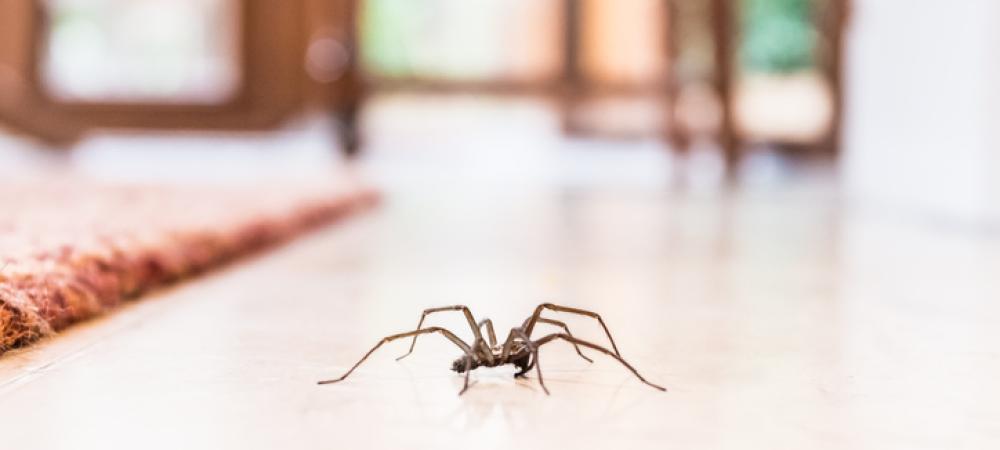Spiders in North Texas During Summer: Are They Coming Inside?

Table of Contents
Summer in North Texas means cookouts, pool time, and long, sunny days. But it also means more bugs—and where there are bugs, spiders are sure to follow. If you’ve noticed more spider sightings around your home lately, you're not alone. Many homeowners are surprised to learn that summer is actually peak spider season, and yes—they are coming inside.
So why does spider activity ramp up in the summer? And more importantly, what can you do about it?
Why Summer Means More Spiders
Spiders are year-round residents in North Texas, but summer brings a noticeable spike in activity. Here’s why:
More Insects = More Food
Spiders are predators that thrive where their prey lives. Summer is prime time for flies, mosquitoes, ants, and beetles—making your yard and home an all-you-can-eat buffet. If you're dealing with other pest issues, you’re likely inviting spiders as well.
Seeking Shelter from the Heat
We all head indoors when temps hit the high 90s or triple digits—and spiders do the same. The intense North Texas heat can drive spiders to cooler, shaded environments, especially well-insulated homes with A/C. Garages, utility rooms, and baseboards offer the shelter they need.
Breeding Season
Many spider species breed in late spring and early summer. That means you might be seeing more spiders out in the open as males wander in search of mates and females settle into dark, quiet areas to lay eggs. A single egg sac can contain hundreds of spiderlings, making early intervention key to avoiding long-term infestations.
Common Summer Spiders in North Texas
Here are some of the usual suspects you might see in and around homes during the summer months:
Common House Spiders
- Small, yellowish-brown, with a rounded abdomen
- Harmless and helpful—they feed on flying insects
- Often build webs near windows, ceilings, and corners
Wolf Spiders
- Large, hairy, and fast-moving
- Do not makewebs—hunt at ground level, often at night
- Can look intimidating but are not aggressive toward humans
Jumping Spiders
- Compact body with short legs and excellent vision
- Often seen on sunny windowsills or walls
- Curious by nature and not dangerous
Brown Recluse
- Light brown with a violin-shaped marking on its back
- Prefers undisturbed areas like storage boxes, closets, or under furniture
- Bites can be medically significant and require prompt care
Black Widow
- Glossy black with a red hourglass on the abdomen (underside)
- Builds irregular webs in garages, sheds, under decks, and patio furniture
- Venomous—known for causing muscle pain and nausea, especially in children or pets
Note: Both the Brown Recluse and Black Widow are venomous and should be handled professionally.
Why Spiders Come Indoors in Summer
Many people assume spiders only sneak indoors when it gets cold, but summer heat often pushes them in just as urgently.
Here's what draws them in:
- Cool indoor temps from A/C systems
- Moisture, especially in bathrooms, laundry rooms, and under sinks
- Insects already inside your home (which spiders hunt)
- Dark, undisturbed corners perfect for nesting or hiding
Once inside, they may settle in:
- Baseboards
- Utility closets
- Behind furniture
- Attics and garages
- Inside storage bins or cardboard boxes
How to Keep Spiders Out of Your Home
While it’s nearly impossible to prevent every spider from entering, these tips can drastically reduce your chances of an infestation:
- Limit Outdoor Lighting: Spiders don’t love light—but the bugs they eat do. Switch to yellow “bug lights” or install motion-activated fixtures to reduce attraction.
- Declutter and Clean Regularly: Spiders love stillness. Declutter rooms, especially storage areas, and vacuum often—paying special attention to ceilings, corners, baseboards, and behind furniture.
- Remove Webs Early: Remove webs as soon as you see them. Spiders that lose their webs will often move on—especially if food is scarce.
- Seal Up Entry Points: Use caulk or weather stripping to seal cracks around doors, windows, and vents. Even the tiniest gap can become a doorway for a spider.
- Eliminate Moisture Sources: Fix leaky faucets or pipes, and use a dehumidifier. Many spiders are drawn to humid environments.
How Myles Pest Services Can Help
At Myles, we take spider problems seriously. Our technicians know the habits of North Texas spiders and how to safely and effectively treat your home without disrupting your family.
Our spider control services include:
- Full property inspection to identify entry points and hiding spots
- Targeted treatments for problem areas indoors and out
- Exterior barrier sprays to stop spiders before they come inside
- Family- and pet-friendly solutions for your peace of mind
- Customized treatment plans based on your home’s needs
But spider control is just one part of what we do. Many times, when spiders are showing up, it’s because other pests—like ants, roaches, flies, or even termites—are already active around your property. That’s why we offer comprehensive pest control services that tackle the root causes and protect your home year-round.
With Myles, you get:
- Proactive prevention, not just reaction
- Consistent service to keep pests away in every season
- Local expertise from friendly professionals who care Whether you’re dealing with a spider scare or want full pest protection for your home, Myles Pest Services has you covered.
Final Thoughts: You Don’t Have to Live with Spiders This Summer
Most spiders in North Texas are harmless—but that doesn’t mean they belong inside your home. And with venomous species like the Brown Recluse and Black Widow around, it’s worth taking precautions.
Ready for a pest-free summer? Let Myles Pest Services take care of the spiders, so you can focus on what really matters—making memories with your family, not fighting off uninvited guests. Call us today or book online to schedule your spider control or full-home pest service.
Frequently Asked Questions About Spiders in North Texas
Are most spiders in my home dangerous?
No. Most are harmless and even beneficial. However, Brown Recluse and Black Widow spiders are venomous and should be treated with caution.
Can spiders infest my home?
Not in the traditional sense like ants or termites—but a single egg sac can release hundreds of spiderlings. If you're seeing spiders regularly, it's a sign you need treatment.
Will a one-time treatment keep spiders away for good?
One-time treatments help in the short term. For long-term results, recurring pest control service is the most effective option.
What attracts spiders into the home?
Cool temps, cluttered areas, moisture, and—most importantly—other pests (their food source).
Is Myles' treatment safe for kids and pets?
Absolutely. We use family- and pet-friendly products applied by licensed professionals who treat your home with care and precision.

